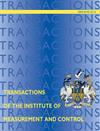基于变分贝叶斯自适应矩估计的联合概率数据关联新算法
IF 1.7
4区 计算机科学
Q3 AUTOMATION & CONTROL SYSTEMS
Transactions of the Institute of Measurement and Control
Pub Date : 2023-08-22
DOI:10.1177/01423312231157120
引用次数: 0
摘要
为了提高杂波环境下多目标跟踪的精度,提出了一种基于变分贝叶斯自适应矩估计的联合概率数据关联(JPDA)算法。首先,考虑测量值的存在性,JPDA中目标状态的后验分布由概率加权两部分组成,即真实测量值存在于关联门的目标状态的后验分布和真实测量值不存在于关联门的目标状态的后验分布。结合先验分布和后验分布的共轭性质,对两种情况下目标状态的先验分布进行分类,提供更准确的先验信息进行过滤,从而提高数据关联的准确性。其次,考虑到状态估计与数据关联过程之间的耦合效应,结合变分贝叶斯推理,将最小化Kullback-Leibler散度问题转化为最大化证据下界问题,从而有效度量目标状态估计后验分布与真实后验分布之间的距离;从而再次从优化非线性滤波器的角度提高数据关联的准确性。最后,引入自适应动量估计策略,迭代求解满足证据下界最大化的变量分布,完成目标状态后验分布的优化。通过理论推导和仿真实验验证了该算法的可行性和有效性。本文章由计算机程序翻译,如有差异,请以英文原文为准。
New joint probabilistic data association algorithm based on variational Bayesian adaptive moment estimation
To improve the accuracy of multiple target tracking in the clutter environment, a new joint probabilistic data association (JPDA) algorithm based on variational Bayesian adaptive moment estimation is proposed. First, considering the existence of measurements, the posterior distribution of the target state in JPDA is composed of two parts of probability weighting, that is, the posterior distribution of the target state that the real measurement exists in the association gate and the posterior distribution of the target state that the real measurement does not exist in the association gate. By combining the conjugate properties of the prior and posterior distributions, the prior distributions of the target state in the two cases are classified to provide more accurate a priori information to filter, so as to improve the accuracy of data association. Second, considering the coupling effect between state estimation and data association process, combined with variational Bayesian inference, the problem of minimizing Kullback–Leibler divergence is transformed into the problem of maximizing the evidence lower bound, thereby effectively measuring the distance between the posterior distribution of target state estimation and the real posterior distribution, so as to improve the accuracy of data association again from the perspective of optimizing nonlinear filter. Finally, the adaptive momentum estimation strategy is introduced to iteratively solve the variable distribution that meets the maximization of the evidence lower bound, and the optimization of the posterior distribution of the target state is completed. Theoretical derivation and simulation experiments are conducted to verify the feasibility and effectiveness of the algorithm.
求助全文
通过发布文献求助,成功后即可免费获取论文全文。
去求助
来源期刊
CiteScore
4.10
自引率
16.70%
发文量
203
审稿时长
3.4 months
期刊介绍:
Transactions of the Institute of Measurement and Control is a fully peer-reviewed international journal. The journal covers all areas of applications in instrumentation and control. Its scope encompasses cutting-edge research and development, education and industrial applications.

 求助内容:
求助内容: 应助结果提醒方式:
应助结果提醒方式:


